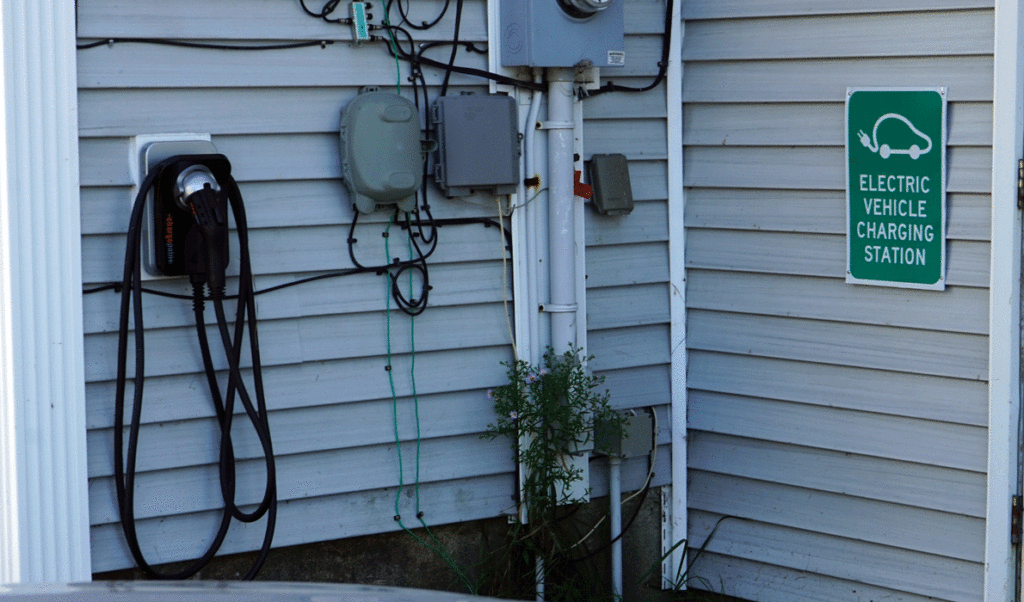By Kathleen Meil
As the newly elected governor, Janet Mills faces the need to revitalize the Maine’s economy, competitiveness, and overall quality of life while safeguarding its iconic natural resources. This ambitious agenda is achievable through proven reforms that unleash innovation by centering the renewal of transportation and energy systems in Maine’s economic and climate action strategy.
Acadia Center’s latest analysis—a “Memo to Maine’s Next Governor,” prepared before the election and scheduled to be released at a public forum in December—explores the tremendous impact of five reforms that advance this shift toward clean energy.
1. Modernize Maine’s transportation infrastructure to improve safety, access, and convenience.
Maine’s transportation system—its network of ferries, highways, trains, public transit, airports, ports, and walking and biking corridors—is vital to the state’s economy. However, many Mainers are underserved and overburdened by our aging, underfunded system, especially in island and rural communities.
Transportation is responsible for more than half of all climate polluting emissions and $500 million in health costsin Maine. Modernizing transportation, including through electrification of cars, buses, and ports, could produce over $3.8 billion in new economic benefits, add 8,700 new jobs, and create $2.3 billion in public-health and other benefits.
2. Transition power generation to cheaper, cleaner, more resilient local sources.
Electric power is at the core of Maine’s economic well-being and overall quality of life, yet the state relies heavily on imported natural gas for power production within an inflexible, centralized system. Maine needs to protect and grow in-state renewable energy generation—including distributed energy resources like rooftop solar and battery storage—to maximize long-term economic growth, advance energy independence, and meet climate goals. Increasing rooftop solar installations alone could create almost 1,300 new jobs and add about $9 million annually in new state tax revenue while reducing emissions from power generation.
3. Improve energy performance in buildings to reducecostly energy use and emissions.
Maine leads the region in adoption of modern electric heat pumps that offer highly efficient performance even at low temperatures, but the state’s aging buildings still depend heavily on home heating oil. Switching from dirty fossil fuels to electric heat pumps is an economic and environmental win-win, offering strong cost savings and deep pollution reductions.
Efficiency offers another clean, low-cost energy choice. Increasing savings targets to match those in leading states and prioritizing continued, consistent investment in efficiency programs could yield $306 billion in economic growth and approximately 3,600 skilled new jobs.
4. Change power grid rules to reduce high energy costs and speed energy innovation.
The regulations that drive decision-making about Maine’s energy grid are out of sync with technological advances and consumer expectations for a clean, resilient energy system. Local energy resources like energy efficiency, rooftop solar, and energy storage are tools that can solve grid problems while reducing reliance on expensive traditional infrastructure projects. The energy grid of the future will give consumers more opportunities to pursue cost-effective alternatives and participate in clean energy.
5. Give communities and consumers more control over their energy choices.
In the spirit of our state motto—Dirigo!—Maine communities are already leading the way with ambitious climate commitments and clean energy innovations. Isle au Haut is building a solar-powered microgrid. Mount Desert Island is working to achieve energy independence by 2030. Maine’s newgovernor must reform outdated rules and laws that threaten the success of this community action.
These transportation and energy reforms can open a new, bold future for Maine—one that is prosperous, innovative, and healthier for Maine’s people and communities. Over and over, the facts show that the opportunity to transform Maine is real—billions of dollars in economic growth and thousands of new jobs are within reach.
Our newgovernor can make the clean energy future a reality by prioritizing key transportation and energy policies. To contribute your voice, please join us at the EnergyVision Forum on Dec. 7 in Augusta.
Kathleen Meil is Maine policy advocate at Acadia Center, anonprofit clean energy research and advocacy organization headquartered in Rockport.To learn more about the governor’s memo or public forum, contact Meilat kmeil@acadiacenter.org





